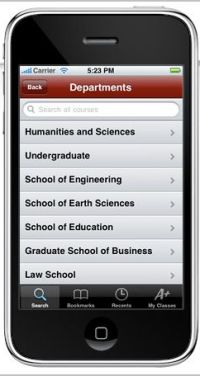Going Mobile For Learning
I'm not a hardcore follower of mobile learning efforts, but I monitor a few blogs that do - mlearnopedia.blogspot.com, mlearningworld.blogspot.com and mobilemind.net, for example.
So, I read posts about "Ten Reasons for Mobile Learning eLearning" (the reasons coming from an Intel strategist talking to a university audience) and I wonder if "partial brain learning" is happening and that if "creativity is limited when teachers and students must comply to learning system methodology to conduct learning activities" will mobile learning solve the problem? Does a web portal solution and "the forced repeated downloading it requires, make[s] it very difficult for students with slower connections to receive the information?"
I see that trainers outside of academia are looking at "Authoring Best Practices for Mobile Learning Content Development" and wonder if schools are doing the same things, or if we are behind already.
Cheryl Johnson says in an article titled "Thinking Differently About Mobile Learning" that we limit our efforts by continuing to think in familiar terms - modules, quizzes, tests, assessments - even though this delivery method is quite different and offers the possibilities of different methods.
 Just this week, Blackboard announced that it purchased a student-run company that produces iPhone applications. For those schools and instructors who are teaching students to build those apps (and Serendipity35's Brother Tim is one of them at NJIT), there is a great student motivational story in that Blackboard bought TerriblyClever Design for $4 million.
Just this week, Blackboard announced that it purchased a student-run company that produces iPhone applications. For those schools and instructors who are teaching students to build those apps (and Serendipity35's Brother Tim is one of them at NJIT), there is a great student motivational story in that Blackboard bought TerriblyClever Design for $4 million.
TerriblyClever was founded by two Stanford students (one will be a senior this fall!) all of two years ago, and their MobilEdu application lets users access campus services on iPhones or other mobile devices.So, your students could check out the course catalog, get news on events, watch lectures, even use GPS to find their way on a big campus. Sounds like a great orientation app.
They have some schools that have adapted the app already - Stanford, Duke, Texas A&M, UC San Diego.
I guess it's encouraging that companies are looking at mobile learning (Blackboard Learn was already available to access Blackboard courses), but what about the schools themselves looking at the pedagogy to use these apps and platforms?
I freely admit to being out of touch with this area and would welcome comments about efforts at campuses K-20 to do innovative "teaching" with mobile devices. I created a "mobile" category on this blog because I know I can't avoid the topic and stay relevant. What interests me is the the learning half of mobile learning and not the mobile portion. (INSTRUCTIONAL technology not instructional TECHNOLOGY.)
It's great that at Stanford the MobileEdu application has been downloaded 45,000 times. That means that it's not just students, but also parents, prospective students, staff, faculty, alumni and visitors. Now, tell me how it is improving learning.
So, I read posts about "Ten Reasons for Mobile Learning eLearning" (the reasons coming from an Intel strategist talking to a university audience) and I wonder if "partial brain learning" is happening and that if "creativity is limited when teachers and students must comply to learning system methodology to conduct learning activities" will mobile learning solve the problem? Does a web portal solution and "the forced repeated downloading it requires, make[s] it very difficult for students with slower connections to receive the information?"
I see that trainers outside of academia are looking at "Authoring Best Practices for Mobile Learning Content Development" and wonder if schools are doing the same things, or if we are behind already.
Cheryl Johnson says in an article titled "Thinking Differently About Mobile Learning" that we limit our efforts by continuing to think in familiar terms - modules, quizzes, tests, assessments - even though this delivery method is quite different and offers the possibilities of different methods.
TerriblyClever was founded by two Stanford students (one will be a senior this fall!) all of two years ago, and their MobilEdu application lets users access campus services on iPhones or other mobile devices.So, your students could check out the course catalog, get news on events, watch lectures, even use GPS to find their way on a big campus. Sounds like a great orientation app.
They have some schools that have adapted the app already - Stanford, Duke, Texas A&M, UC San Diego.
I guess it's encouraging that companies are looking at mobile learning (Blackboard Learn was already available to access Blackboard courses), but what about the schools themselves looking at the pedagogy to use these apps and platforms?
I freely admit to being out of touch with this area and would welcome comments about efforts at campuses K-20 to do innovative "teaching" with mobile devices. I created a "mobile" category on this blog because I know I can't avoid the topic and stay relevant. What interests me is the the learning half of mobile learning and not the mobile portion. (INSTRUCTIONAL technology not instructional TECHNOLOGY.)
It's great that at Stanford the MobileEdu application has been downloaded 45,000 times. That means that it's not just students, but also parents, prospective students, staff, faculty, alumni and visitors. Now, tell me how it is improving learning.
Comments
No comments